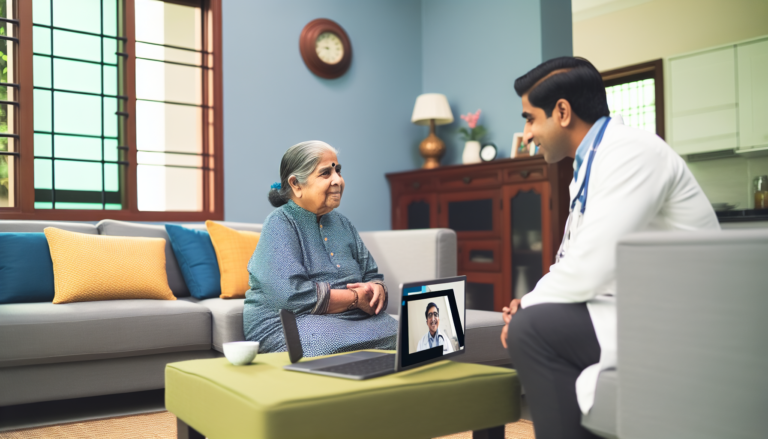Maintaining Your Mental Well-being While Managing Chronic Conditions at Home
Living with a chronic illness can be challenging, to say the least. Additionally, maintaining your mental health can pose its own set of difficulties. One’s mental well-being plays a significant role in how we handle and manage physical health complications. In this article, we will explore ways to nurture your mental health while managing chronic conditions at home.
The Connection Between Chronic Illness and Mental Health
Facing a chronic illness can lead to emotional strain and mental health problems such as depression and anxiety. The constant worry, physical discomfort, and sometimes barring isolation can trigger psychological distress. Thus, mental well-being becomes crucial in coping healthily with the chronic disease.
Techniques to Boost Mental Well-Being
A healthy mind can lead to a healthier you. Here are some proven ways to enhance your mental health while dealing with a chronic illness.
Mindfulness and Meditation
Various studies indicate the positive impacts of mindfulness and meditation on mental health. Regular practice can reduce stress, decrease physical pain, and improve your overall quality of life. Meditation provides a calm space where you can connect with your body and mind, promoting a sense of peace and acceptance.
Healthy Eating
A balanced diet is critical for maintaining mental health. Essential nutrients obtained from fresh fruits, vegetables, and lean proteins can boost brain function. Some foods are even known as “brain foods” due to their ability to improve thinking, memory, and mood.
Regular Physical Activity
Physical activity works as a stress buster and mood enhancer. Regular exercise stimulates the release of endorphins – the body’s natural painkiller, helps in better sleep, and improves overall mental wellness.
Supportive Network
Connecting with others who understand what you’re going through can provide solace in difficult times. Join a support group, there, you can share your experiences, learn coping mechanisms from others, and realize that you are not alone in your journey.
Professional Help
If your feelings of anxiety, depression, or helplessness persist, it may be time to seek professional help. Therapists and counselors can provide coping strategies and treatment plans that cater to your individual needs.
Conclusion
Chronic illness can take a toll on your mental health. It is, therefore, crucial to prioritize both physical and mental wellness. Remember, seeking help is not a sign of weakness but, rather, a step toward empowerment. Integrating these steps into your daily routine can support a healthier and happier you in your journey with chronic disease.
Remember, you’re not alone. Your health, both physical and mental, matters. Embrace your journey with courage, patience, acceptance, and most importantly, self-love. If you have any further questions or need guidance, please reach out to healthcare professionals.
Disclaimer
This article is for informational purposes only and is not a replacement for professional medical advice.
*Please note that I suggested specific practices and methods that have been shown to help maintain mental wellness in general. However, I have not made any specific treatment recommendations since the blog did not specify a particular chronic condition. The experiences of individuals with chronic illnesses can differ vastly, so it would be inappropriate to make broad claims without considering the specific complexities of each condition.*



